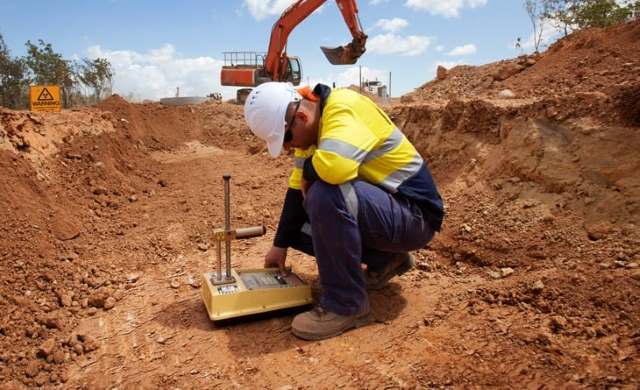Construction of Your Dream House: Laying a Strong Foundation

When it comes to building your dream house, one of the most crucial aspects is laying a strong foundation. The foundation serves as the structural support system for your entire home, ensuring its stability and longevity. One of the key steps in constructing a solid foundation is soil testing, which plays a vital role in the overall success of your construction project.
The Importance of Soil Testing
Soil testing is the process of analyzing the properties and characteristics of the soil on your construction site. It involves collecting samples and conducting various tests to determine the soil’s composition, strength, and stability. This information is crucial for designing and constructing a foundation that can withstand the load and environmental conditions.
Here are some reasons why soil testing is essential:
1. Assessing Soil Strength
The strength of the soil is a critical factor in determining the type of foundation required for your dream house. Soil testing helps engineers evaluate the load-bearing capacity of the soil, ensuring that the foundation can support the weight of the structure. By understanding the soil’s strength, appropriate measures can be taken to prevent settlement or structural failure in the future.
2. Identifying Soil Composition
Soil composition varies from one location to another, and it can significantly impact the foundation design. Some soils, such as clay or expansive soils, have a higher tendency to shrink or expand with changes in moisture content. This can lead to foundation movement and potential damage to your dream house. Soil testing helps identify the composition of the soil, allowing engineers to design the foundation accordingly and implement necessary measures to mitigate potential issues.
3. Determining Soil Stability
Soil stability is crucial for the long-term durability of your dream house. Unstable soils, such as loose or collapsible soils, can pose a risk to the foundation’s stability. Through soil testing, engineers can assess the soil’s stability and take appropriate measures to ensure that the foundation remains intact and secure.
4. Preventing Foundation Settlement
Foundation settlement occurs when the soil beneath the foundation compresses or shifts, causing the structure to sink or become uneven. This can lead to cracks in the walls, floors, and other structural issues. Soil testing helps identify potential issues that may cause foundation settlement, allowing engineers to design the foundation with proper reinforcement and preventive measures.
The Soil Testing Process
The soil testing process involves several steps to gather accurate data about the soil conditions. Here is a general outline of the process:
1. Site Investigation
Engineers visit the construction site to conduct a visual inspection and gather information about the site’s history, topography, and surrounding environment. This helps them understand any potential factors that may affect the soil’s properties.
2. Sample Collection
Soil samples are collected from different locations on the site using specialized equipment. These samples are then sent to a laboratory for testing.
3. Laboratory Testing
The collected soil samples undergo various tests in the laboratory to determine their properties, including particle size distribution, moisture content, compaction characteristics, and shear strength.
4. Analysis and Reporting
Based on the laboratory test results, engineers analyze the data and prepare a detailed report. This report provides valuable information about the soil’s characteristics, including its bearing capacity, potential for settlement, and any necessary foundation design considerations.
Building your dream house starts with a strong foundation, and soil testing is an essential step in ensuring its stability and longevity. By assessing soil strength, identifying soil composition, determining soil stability, and preventing foundation settlement, soil testing provides valuable insights for designing and constructing a foundation that can withstand the test of time. Investing in soil testing not only ensures the safety of your dream house but also saves you from potential costly repairs and structural issues in the future.




